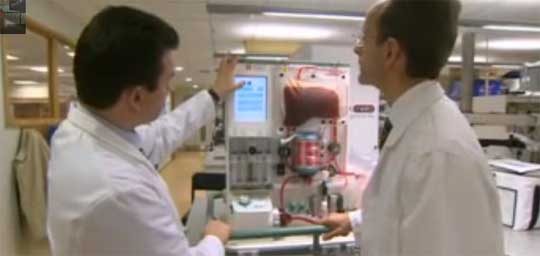

By restoring communication between a cell’s mitochondria and nucleus, researchers have reversed aging in mice. A team led by David Sinclair, a professor from UNSW Medicine who is based at Harvard Medical School, found that by restoring this molecular communication, aging could not only be slowed, but could be reversed. The technique has implications for treating cancer, type 2 diabetes, muscle wasting, inflammatory and mitochondrial diseases.
The study follows on from previous research showing that exercise and certain dietary habits, such as calorie restriction or the intake of resveratrol (found in red wine and nuts), slowed the breakdown of intra-cellular communication and therefore aging.
Responsible for this breakdown is a decline of the chemical NAD. By increasing amounts of a compound used by the cell to produce NAD, Professor Sinclair found that he could quickly repair mitochondrial function.
“It was shocking how quickly it happened,” co-author Dr Nigel Turner, an ARC Future Fellow from UNSW’s Department of Pharmacology says. “If the compound is administered early enough in the aging process, in just a week, the muscles of the older mice were indistinguishable from the younger animals.”
Read the full article on Gizmag.






